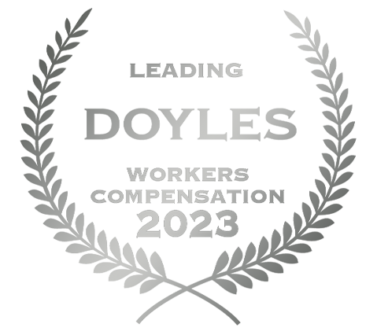
Appeal Court Rules in Favour of Worker in $520K ‘Low Shelf’ Case Against Grocery Chain.
Williams v Metcash Trading Ltd [2019] NSWCA 94 (3 May 2019)

In what can only be described as a sensational win for a former picker-packer at a grocery chain, the Court of Appeal has overturned the primary judge’s decision and ordered a grocery chain pay the appellant $520,000 in damages.
Background
Matthew Williams, who was employed by Metcash Trading, was required as part of his employment as a picker-packer to utilise an electronic pallet jack in the warehouse to fulfil orders which would filter through to him via a headset. To accomplish this task in a timely manner, which was required, Williams needed to manually retrieve and pick up items such as dog food boxes weighing 15kg that were stored below a 1.4m high shelf.
Prior to his employment with Metcash Trading, Mr Williams had sustained several injury events, but during the job application process he denied having had any prior work injuries, worker’s compensation claims or medical conditions.
Four months into his employment with the chain, Williams suffered a herniated disc after lifting two boxes of dog food stored below a 1.4m shelf and then loading them onto the electronic pallet jack. Williams worked through the pain for a number days following the incident before succumbing to his injuries which prevented him from completing his manual duties and lodged a workers compensation claim.
Proceedings in the District Court of NSW
In June 2017, the appellant commenced proceedings in the District Court of NSW against the respondent seeking damages in respect of the herniated disc injury suffered in June 2012 while working at the warehouse.
During the proceedings, Metcash shed light on its expectations of all picker-packers and more specifically the engineered standard ‘pick rate’. This was based on completing orders within a certain time frame but did not specifically take into account the weight of items. Metcash claimed that the pick rate was primarily based on the work capacity of an average worker and allowed for correct manual handling techniques, toilet breaks and fatigue in its calculation. And the expectation was to get to 100% pick rate by the end of the first six weeks of employment.
The appellant refuted this claim by Metcash and provided evidence from colleagues that the expectation to meet the 100% pick rate was in fact within the first month of employment and the pressure to achieve this forced employees to lift more than one box at times.
After nine days of submissions and evidence, Judge Matthew Dicker decided Metcash wasn’t required to pay any compensation as Mr Williams’ injury was caused solely by his own conduct in lifting two boxes of dog food – contrary to a single lift as advised – that solely caused the injury.
“In my view a back injury to the plaintiff was clearly foreseeable,” concluded Judge Matthew Dicker
Court of Appeal
On appeal,
Mr Williams challenged the primary judge’s finding:
(i) that the negligence as found was not causative of his harm; and
(ii) that in any event Mr Williams’ award of damages would have been reduced by 20 per cent on account of his contributory negligence;
while Metcash Trading, by way of cross-appeal, challenged the primary judge’s:
(iii) finding that requiring boxes of dog food to be lifted from a pick slot 1.4m in height was a breach of its duty of care; and
(iv) findings as to damages.
The appellant argued that the trial judge had; “erroneously assumed that the picking up of two boxes of dog food at a time by itself would have resulted in the same injury, irrespective of the height of the pick slot.”
The appeal judges agreed with the appellant, claiming that the primary judge failed to consider whether the injury would not have occurred had the pick slot been raised to 1.8 metres as this would have afforded the Mr Williams the chance to employ a safer method of lifting – something that was not possible at 1.4 metres.
In regards to the finding of contributing negligence – the primary judge’s findings were upheld as the system did not require Mr Williams to lift two boxes at once.
Metcash’s challenge to the damages were also dismissed by the appeal judges.
And so, it was determined that Metcash must pay the assessed damages at $520,000 less 20% due to the contributory negligence and less a further 20% due to the role of the labour hire company.
Call 13 15 15 or chat to us now for free advice
Chat nowFind out how much you can claim.
Get startedRelated articles.
Do I have a case?
Our senior lawyers will assess your case for free.










